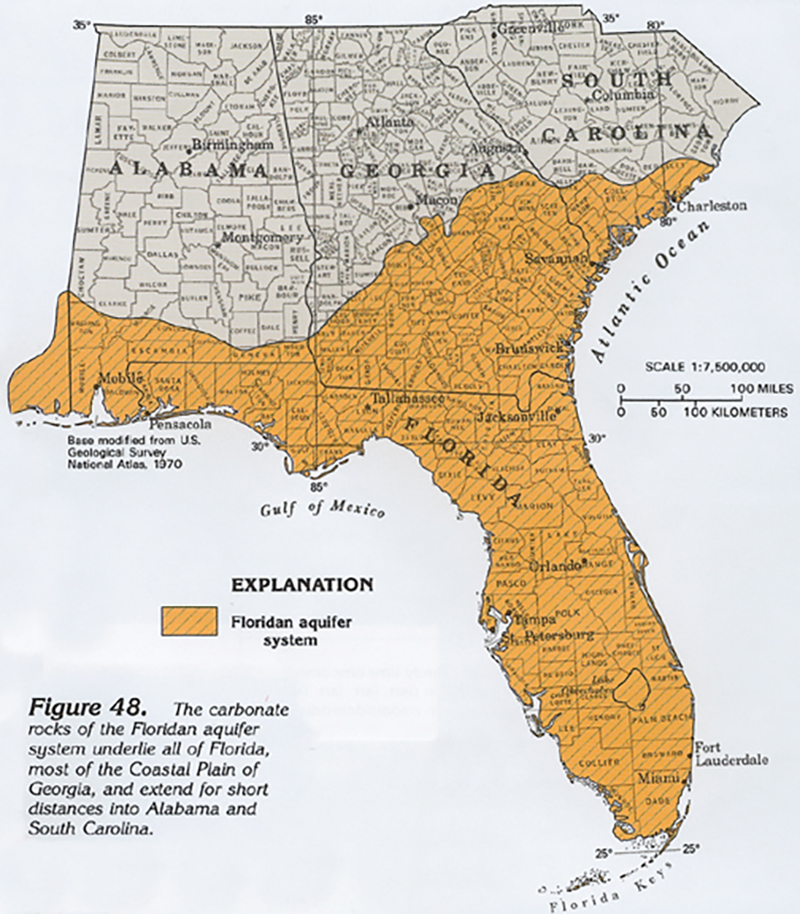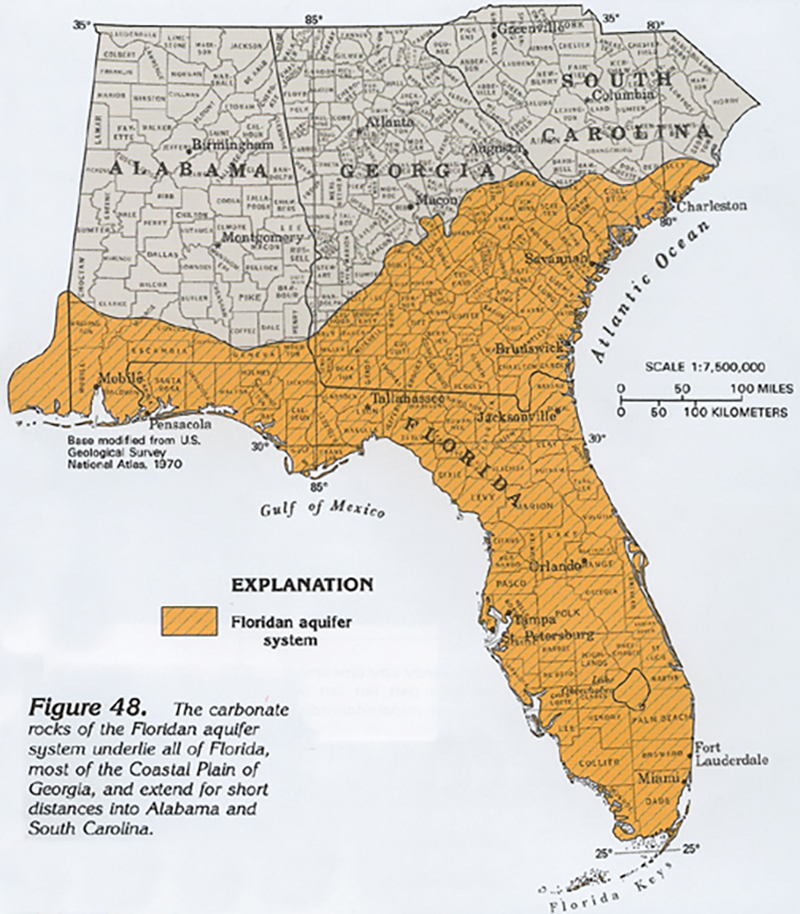As concerns grow over the ability of the Upper Floridan Aquifer to keep up with demands for water from residents, farms and forests, four universities are teaming up to look at the economic sustainability of agriculture and forestry in north Florida and south Georgia that rely on this water supply.
The Upper Floridan Aquifer supports agricultural activities worth more than $7.5 billion and provides drinking water to 10 million people, said Puneet Dwivedi, assistant professor of sustainability sciences at the University of Georgia’s Warnell School of Forestry and Natural Resources. “But it is facing significant threats to water quality and quantity, which could potentially harm food security, fiber production and vital ecosystem services,” he said.
The researchers will focus on developing new best management practices and increasing farmers’ adoption of existing best practices, leading to reduced water use and improved water quality in the aquifer.
Researchers from the University of Georgia are collaborating with scientists from three other universities on the five-year, $5 million project. Led by the University of Florida Water Institute, UGA will partner with faculty from Auburn University and Albany State University on the study, which is funded by the U.S. Department of Agriculture’s National Institute of Food and Agriculture. UGA will receive $1.2 million of the total grant funding.
Dwivedi is leading the UGA team, which includes researchers from the College of Agricultural and Environmental Sciences: George Vellidis, professor of crop and soil sciences; Wes Porter, assistant professor of crop and soil sciences; Amanda Smith, public service associate in agricultural and applied economics; and Carrie Furman, anthropologist and assistant research scientist of crop and soil sciences.
Researchers from all four universities will conduct experiments to develop farming practices that reduce water use and fertilizer loss while still resulting in a profitable crop yield. Researchers from Florida and Auburn University will then create computer models that can predict the impacts of various land and water uses.
At UGA, Dwivedi will develop a model for understanding how the adoption of best management practices will change the current land use in the study area and the consequences of such changes on water quality and quantity. Vellidis will develop best management practices that will optimize the use of water and fertilizers for the region’s major crops. Porter will work with farmers to promote advanced irrigation scheduling methods for improving water use efficiency of crops, including the development of an irrigation app.
Smith will be responsible for the creation and revision of new and existing farm-level budgets to address how changes to best management practices affect costs at the farm level within the region. Furman will research and document learning and communication between farmers and project members.
Vellidis said it’s not just how much the aquifer is used that is affecting its health and sustainability. Farming activities may also be impacting water quality. In northern Florida, for example, nitrate levels have been increasing in the region’s springs, which are fed by the aquifer.
“Nitrate contamination can be caused by nitrogen fertilizers leaching through the soil to the aquifer, so some are attributing the increase in nitrates found in the springs to farming activities,” he said. “The aquifer spans four states and does not conform to political boundaries. Our project will attempt to provide solutions that can be applied across boundaries and address the aquifer as a whole.”
Porter said he expects that many farmers will already be early adopters of new irrigation scheduling methods, and he hopes that they can help him convince other producers to get on board with the best management practices.
“There are always issues and problems that can cause hindrance and reduction in adoption of these practices,” Porter said. “We will have to work with county agents and other farmers to build confidence in these best management practices and to build confidence for the producers who are skeptical about adopting these practices.”
Smith will work with farmers to see how their costs change with the implementation of these management practices.
“A lot of farm-level decisions are based on what is projected to generate the most profit for the farm business,” she said. “In an industry where margins can be thin, monitoring costs and understanding the impacts to profitability are critical.”
Furman said that she is excited to be part of a project that brings community perspectives and knowledge into the research design and outcomes.
“The fact that we are engaging the community in this project is a key,” she said. “Their perspectives have the potential to truly make our work relevant to this region.”
This release is available online at https://news.uga.edu/releases/article/upper-floridan-aquifer/.





